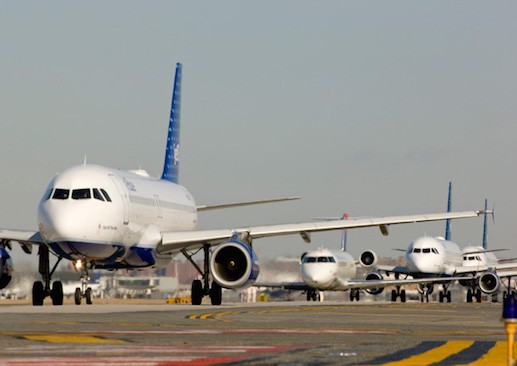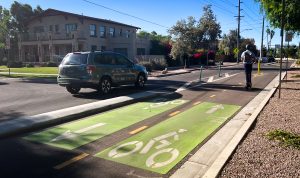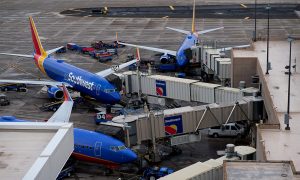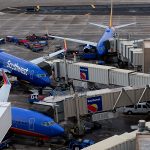Airport planners are always looking to the future to see how they can improve operations. But in the meantime, they have to keep their runways in good operating order.
Three major U.S. airports are resurfacing, or have resurfaced their runways – Denver International, John F. Kennedy International and Las Vegas’s McCarran International airports.
That means bidding out the project, getting the mix of federal and state/local funds to pay for it and getting the project done — all opportunities for stories on these projects.
You can find a guide to airport improvement projects on the FAA’s website.
The bad news is that when runways are shut down, it can cause some delays for passengers, who may be voicing their grips. But the good news is runway resurfacing projects can bring in good jobs and boost economic development.
Let’s take a look at each project.
Denver is spending $46.5 million to resurface Runway 17L-35R, one of the airport’s busiest.
Under the project, construction crews are expected to remove and replace around 2,200 concrete slabs on the runway and adjacent taxiways that are showing signs of deterioration as part of the airport’s ongoing runway rehabilitation program, which tracks the age and condition of more than 150,000 individual concrete panels on the airfield.
The airport tapped Colorado-based Flatiron Constructors for the project. Among the deliverables are replacing 625-square-foot concrete panels, adding new lighting components and installing a new runway pavement sensor system.
JFK Airport’s Runway 4L-22R is a parallel runway measuring 11,351 feet long and handles about 25 percent of the facility’s operations annually. It was closed in April under a three-stage rehabilitation project.
That includes constructing 728 feet of runway pavement on the north side of the runway to maintain departure length; widening the runway from 150 feet to 200 feet; rehabilitating the runway using concrete to replace existing asphalt; constructing high-speed taxiways; and replacing and upgrading communications/navigational aid and electrical systems.
The project has a $292 million price tag and is expected to create more than 2,500 jobs and nearly $712.3 million in economic activity.
In Las Vegas, Clark County’s Department of Aviation — which oversees McCarran International Airport — closed Runway 7L/25R for a major renovation in October 2014 to start phase one of a project to replace the runway’s asphalt with more durable concrete.
The project, completed in April 2015 to accommodate increased summer traffic, created approximately 250 construction jobs, including surveyors, contractors, fabricators, engineers and other service providers.
The airport will spend another $16.3 million to close the 14,500 square-foot runway again in late October for another six months in order to resurface its western half with asphalt.
Here are some ideas for resources.
- Go to an airport’s website and click on the About or Doing Business tabs. See what projects are out for bid or already in progress.
- Look at the list of vendors/contractors and speak with the airport’s planning department for job and economic development figures for each project.
- Talk to passengers at each airport to see whether they’ve been inconvenienced by delays. Check with the FAA and the Bureau of Transportation Statistics to see whether construction has had any impact on airport operations.










